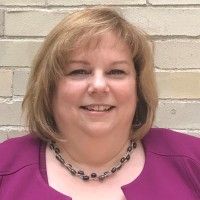Studying for the Certified Meeting Professional exam? MPI Ottawa has you covered!
Learn More
Check out all the exciting events taking place in the upcoming 2023/2024 year!
Learn More

Insider Events – The International Conference on Residency Education

Article written by Louise Gervais, CMP, CMM, Royal College of Physicians and Surgeons of Canada
Basic details of the event:
Title: The International Conference on Residency Education (ICRE)
Date: October 19-21, 2017
City, Country: Quebec City, Canada
Host Venues: Quebec City Convention Centre, Delta Quebec, Hilton Quebec
Organizing Team:
-
Conference Team at the Royal College:
-
Angelita Aboukassam, conference coordinator
-
Brittney Gellately, conference assistant
-
Louise Gervais, team lead, conference management
-
Katherine Herbert, registration coordinator
-
Courtney Jones, conference administrator
-
Katie Kennedy, marketing specialist
-
Catlin Pilon, conference educational program administrator
-
-
Conference Chair:
-
Jason R. Frank, MD, FRCPC, Royal College of Physicians and Surgeons of Canada
-
-
Conference Co-chairs and Program Advisory Board: Canadian and international representatives of the target audiences.
Number of Attendees: Over 2,300 registrations including pre- and post- conference programs representing a total of 33 countries.
About 100 Royal College staff attend the Royal College’s flagship conference for different reasons. In addition to the core conference team who executes the conference and other programs throughout the week, staff attend for professional development; to present workshops or other programs; support administrative meetings; attend and/or network at international collaborative meetings and events; attend VIP events; attend or work at Convocation; etc.
Who was the target audience?
The target audience included clinical teachers and educators; program directors; residents; postgraduate deans; program administrators; government leaders and policy makers; educational researchers; and medical education leaders.

What was the main objective of your event?
Each year, ICRE brings together clinical educators and physicians from around the world to share ideas, challenges, innovations, and advance training. While education and networking are the focus for ICRE, the Royal College also supports about 20 other programs planned throughout the week hosting anywhere from 25 to 400 people. This doesn’t include administrative meetings, social events or the Convocation ceremony.
What was unique/different about this particular event for you/your organization?
The International Conference on Residency Education is the world’s largest conference devoted exclusively to advancing residency education.

What was the biggest obstacle you/your team had to overcome?
Less than a year before the conference, we faced the challenge of having to change city for this conference. I had the opportunity to work very closely with Jenn Glynn of Meeting Encore and representatives of two convention centres and several hotel properties to renegotiate contracts to move the 2017 ICRE to Quebec City and the 2018 ICRE to Halifax. This successful experience only proves how working closely with suppliers and developing strong relationships is important to the success of our events.
What was your biggest triumph?
Our audience continues to grow and this contributed to our record attendance.
We fully integrated the resident program as part of the conference rather than its own separate event, which meant an opportunity for this audience to network not only with their peers, but with their mentors.

Did you do anything new or innovative? If so, how did it go?
We used Sli.do, a polling software, which we made available through the conference app. It was very successful and we plan to expand the use of this polling software at the 2018 conference.
With the full integration of the resident program into the conference, we implemented ways to further engage residents:
-
The Chief Residents officially opened the conference.
-
The ‘golden ticket’ program: Residents who made an impression on the Chief Residents throughout the three day conference were given a golden ticket. With this golden ticket, the resident was invited to attend one of the pre-plenary meetings or the onsite program planning advisory board meeting, giving them the opportunity to engage with some of MedEd’s most influential people, while experiencing the behind the scenes production of ICRE.
-
A separate resident reception, where residents could meet and network with key medical educators.
-
Resident poster presentations were identified as resident posters.
What challenges did you have putting the features together?
With the presentation of a new polling software, there was some hesitancy from content owners to use it so we ensured that we had appropriate support for those who agreed to pilot the software. We also used the software successfully during the plenary sessions. We plan to expand the use of polling at the 2018 ICRE.
It was important that we provide appropriate content to our Francophone community as we were meeting in Quebec City. Because the conference was moved to Quebec City a year sooner, the program content planners did not have a lot of lead time to do this. However, we were able to provide quality content in French, which was appreciated by those who took advantage of these offerings.

What were some things that you improved on this year over last year?
The Mentoring Program ran a lot smoother this year as we learned from our previous attempts of providing this opportunity where participants could sign-up for one-on-one professional advice from medical educator mentors.
We were also able to expand on the ‘viewing parties’ of the plenary sessions. We provide live webcasting for all of the plenaries and last year we piloted with the Royal Society of Medicine from the United Kingdom to view and send questions to a plenary session. In addition to the participation of the Royal Society of Medicine this year, we welcomed Baylor College of Texas for the first time.
We also worked towards having the conference app available sooner and this year, it was available a month prior to the conference.

Article compiled by Jill Garner, Royal College of Physicians and Surgeons of Canada
Article edited by Cynthia Beaudin, Canada Foundation for Innovation


Leave a commentOrder by
Newest on top Oldest on top